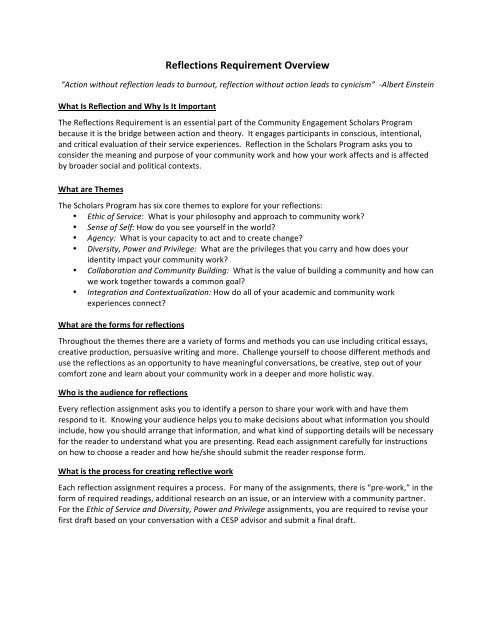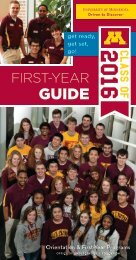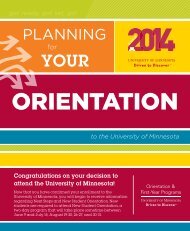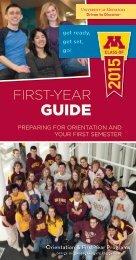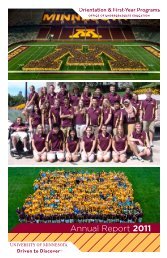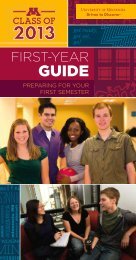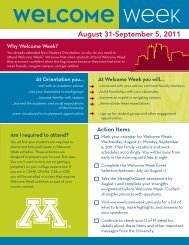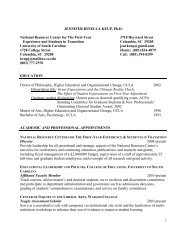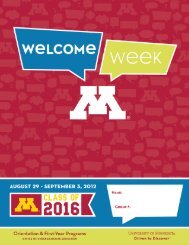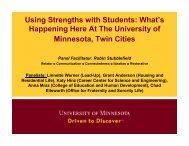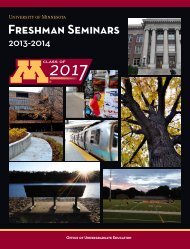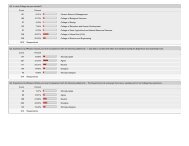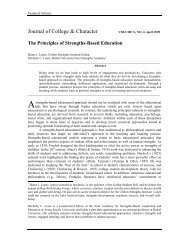Laura Dammer Hess-Handout 1.pdf
Laura Dammer Hess-Handout 1.pdf
Laura Dammer Hess-Handout 1.pdf
You also want an ePaper? Increase the reach of your titles
YUMPU automatically turns print PDFs into web optimized ePapers that Google loves.
Reflections Requirement Overview <br />
“Action without reflection leads to burnout, reflection without action leads to cynicism” -‐Albert Einstein <br />
What Is Reflection and Why Is It Important <br />
The Reflections Requirement is an essential part of the Community Engagement Scholars Program <br />
because it is the bridge between action and theory. It engages participants in conscious, intentional, <br />
and critical evaluation of their service experiences. Reflection in the Scholars Program asks you to <br />
consider the meaning and purpose of your community work and how your work affects and is affected <br />
by broader social and political contexts. <br />
What are Themes <br />
The Scholars Program has six core themes to explore for your reflections: <br />
• Ethic of Service: What is your philosophy and approach to community work <br />
• Sense of Self: How do you see yourself in the world <br />
• Agency: What is your capacity to act and to create change <br />
• Diversity, Power and Privilege: What are the privileges that you carry and how does your <br />
identity impact your community work <br />
• Collaboration and Community Building: What is the value of building a community and how can <br />
we work together towards a common goal <br />
• Integration and Contextualization: How do all of your academic and community work <br />
experiences connect <br />
What are the forms for reflections <br />
Throughout the themes there are a variety of forms and methods you can use including critical essays, <br />
creative production, persuasive writing and more. Challenge yourself to choose different methods and <br />
use the reflections as an opportunity to have meaningful conversations, be creative, step out of your <br />
comfort zone and learn about your community work in a deeper and more holistic way. <br />
Who is the audience for reflections <br />
Every reflection assignment asks you to identify a person to share your work with and have them <br />
respond to it. Knowing your audience helps you to make decisions about what information you should <br />
include, how you should arrange that information, and what kind of supporting details will be necessary <br />
for the reader to understand what you are presenting. Read each assignment carefully for instructions <br />
on how to choose a reader and how he/she should submit the reader response form. <br />
What is the process for creating reflective work <br />
Each reflection assignment requires a process. For many of the assignments, there is “pre-‐work,” in the <br />
form of required readings, additional research on an issue, or an interview with a community partner. <br />
For the Ethic of Service and Diversity, Power and Privilege assignments, you are required to revise your <br />
first draft based on your conversation with a CESP advisor and submit a final draft.
Moodle <br />
The Community Engagement Scholars Program uses Moodle as its medium for distributing and <br />
collecting reflection assignments. When you meet with a CESP advisor to review your Ethic of Service <br />
assignment, you will review the Moodle site and how to use it. If you have any questions or concerns <br />
about how to use the Moodle site, please email cesp@umn.edu.


